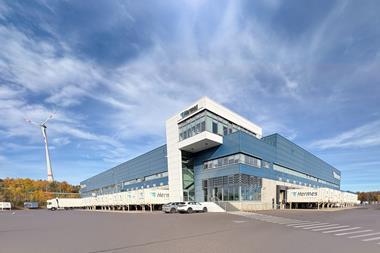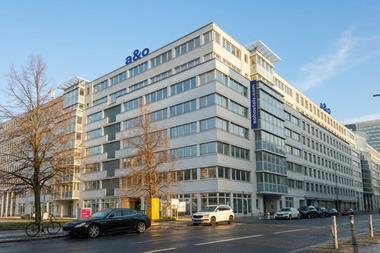Office space could soon grow scarce in Berlin, according to a study commissioned by TLG Immobilien.
Consultancy bulwiengesa’s study, Market forecast for 2020 – Berlin’s office employees of tomorrow, predicts that the German capital will welcome a further 62,000 office employees by 2020.
The increase would take the city’s numer of office staff to around 775,000, or 40% of all earners in the city.
The boom in Berlin’s job market will have a positive effect on the city’s office property market, the report said.
Office rents in Berlin will increase further in the coming years, with demand for office space potentially hitting 1.6m sqm.
Digital companies are driving the office market, the study says.
Technology, media and telecommunications companies, public administration and corporate services will account for 43% of all earners.
Digital companies in Berlin have overshadowed other demand groups, including the government, public administration, auditors and tax advisers, since 2011.
The development of top and average rents also reflects the scarcity of space, the study said.
“Due to the current scarcity of space, all central locations will perform well in the near future,” says Philip La Pierre, head of investment management for Europe at Union Investment Real Estate. “Locations such as Berlin-Mitte, City-West, Mediaspree and Europacity and Adlershof, are and will remain attractive to office tenants.”
La Pierre also sees potential for office property project developments in city districts such as Kreuzberg, Tempelhof, Schöneberg and Südkreuz.
Despite prime yields from office properties in Berlin at 3.85%, investment prospects remain positive, the study said.
“With prices on the rise, we believe that only top locations or properties with so-called ’under-rent’ in sustainable locations are lucrative,” La Pierre says. “There will presumably be no downside for high-quality office properties in the future.”
However, La Pierre is critical of the current price boom.
“The prices of all other properties in weaker locations and with structural deficits could be adjusted,” he says. “We believe that tenancy problems will arise quickly here – even if such properties are extremely popular today.”
Despite the positive growth prospects, TLG Immobilien managing director, Niclas Karoff, says there are risks if Berlin is unable to meet the demand for modern office space and good infrastructure.
“Most of the office space demand groups operate in non-disruptive lines of business and bring life to the city,” he says. “In order to tie them to the city in the long term, Berlin must permit moderate increases in building density and strengthen its IT infrastructure, especially by expanding its 5G network and public wifi.”
Permit processes for new office buildings should be streamlined and accelerated, says Karoff.









